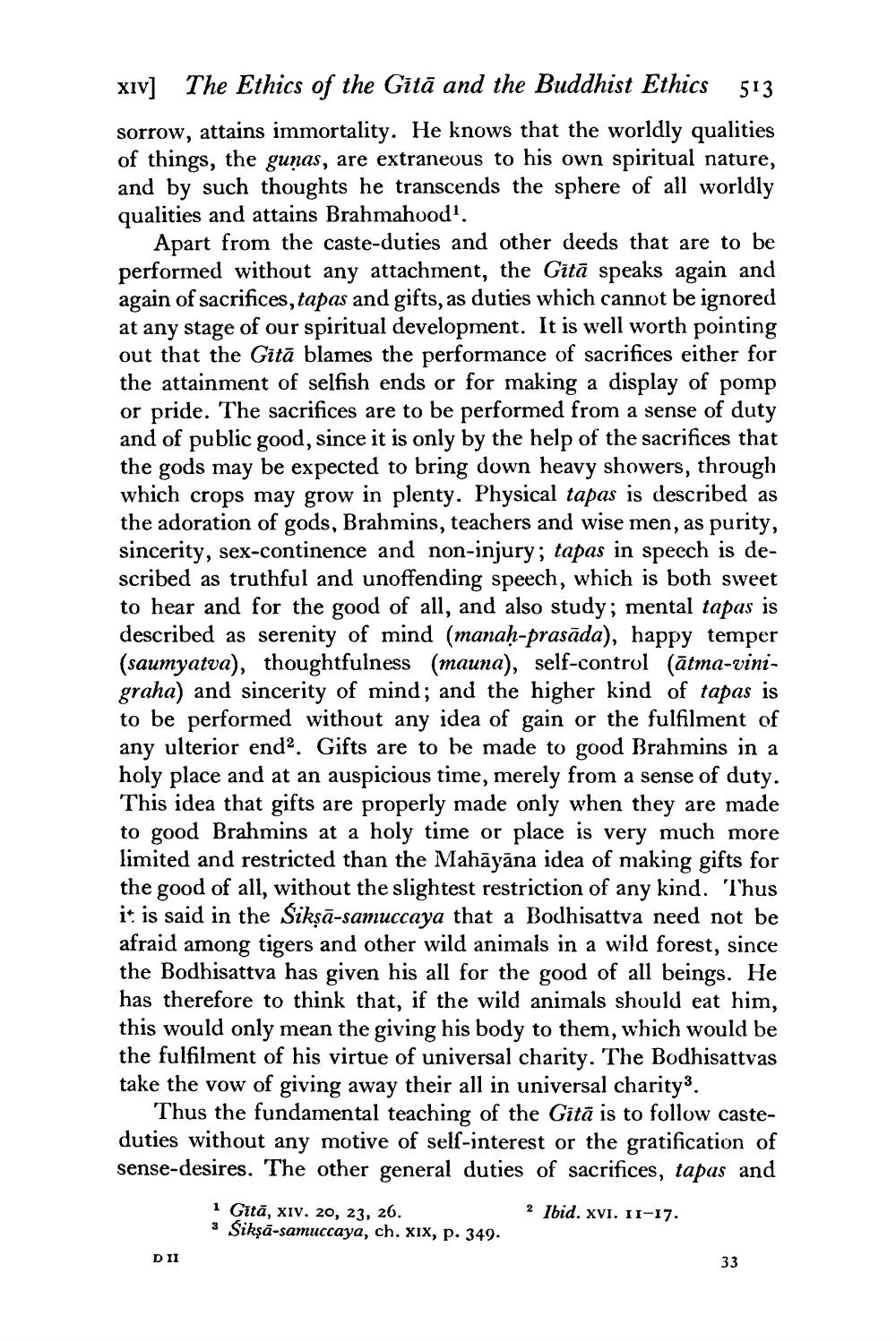________________
XIV] The Ethics of the Gita and the Buddhist Ethics 513
sorrow, attains immortality. He knows that the worldly qualities of things, the guņas, are extraneous to his own spiritual nature, and by such thoughts he transcends the sphere of all worldly qualities and attains Brahmahood1.
Apart from the caste-duties and other deeds that are to be performed without any attachment, the Gita speaks again and again of sacrifices, tapas and gifts, as duties which cannot be ignored at any stage of our spiritual development. It is well worth pointing out that the Gitā blames the performance of sacrifices either for the attainment of selfish ends or for making a display of pomp or pride. The sacrifices are to be performed from a sense of duty and of public good, since it is only by the help of the sacrifices that the gods may be expected to bring down heavy showers, through which crops may grow in plenty. Physical tapas is described as the adoration of gods, Brahmins, teachers and wise men, as purity, sincerity, sex-continence and non-injury; tapas in speech is described as truthful and unoffending speech, which is both sweet to hear and for the good of all, and also study; mental tapas is described as serenity of mind (manaḥ-prasāda), happy temper (saumyatva), thoughtfulness (mauna), self-control (ātma-vinigraha) and sincerity of mind; and the higher kind of tapas is to be performed without any idea of gain or the fulfilment of any ulterior end2. Gifts are to be made to good Brahmins in a holy place and at an auspicious time, merely from a sense of duty. This idea that gifts are properly made only when they are made to good Brahmins at a holy time or place is very much more limited and restricted than the Mahāyāna idea of making gifts for the good of all, without the slightest restriction of any kind. Thus it is said in the Sikṣā-samuccaya that a Bodhisattva need not be afraid among tigers and other wild animals in a wild forest, since the Bodhisattva has given his all for the good of all beings. He has therefore to think that, if the wild animals should eat him, this would only mean the giving his body to them, which would be the fulfilment of his virtue of universal charity. The Bodhisattvas take the vow of giving away their all in universal charity3.
Thus the fundamental teaching of the Gita is to follow casteduties without any motive of self-interest or the gratification of sense-desires. The other general duties of sacrifices, tapas and
2 Ibid. XVI. II-17.
D II
1 Gitā, XIV. 20, 23, 26.
3 Sikṣā-samuccaya, ch. XIX, p. 349.
33




